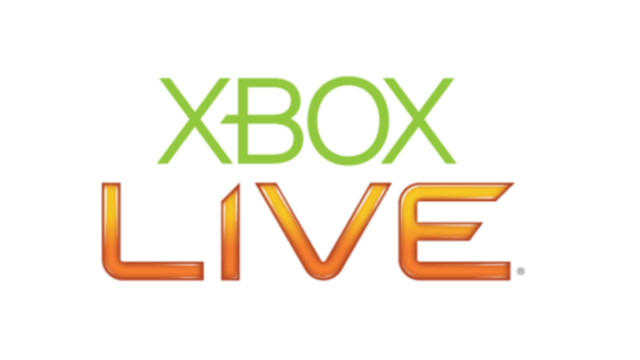SUMMARY
This is AI generated summarization, which may have errors. For context, always refer to the full article.

MANILA, Philippines – Microsoft announced it would reveal official details on the next-gen Xbox on May 21. Microsoft’s Larry Hryb, promised through his blog that on May 21, the Microsoft next-gen Xbox will give us “a real taste of the future.”
Xbox fans from all around the world have been waiting for this announcement since the beginning of 2013. Industry experts and fans alike have been trying to coax out information about the new Xbox codenamed Durango from anonymous industry sources. Rumors and leaks on the Durango have plagued online gaming communities, making Xbox fans look forward to it more.
The ‘always online’ rumors
Last February, Kotaku, a popular gaming and tech site, made a whole list of “confirmed and unconfirmed rumors” on the next Xbox, including the rumor that the new Xbox will mandate all players to always be online.

For its part, Edge, another game and tech site, wrote an article on the possible “always online” feature for the new Xbox. They claim that their sources had firsthand knowledge on the upcoming next-gen Xbox, and that those same sources affirmed the “always online” feature.
Most Xbox fans’ initial reaction? Shock. As more gaming and tech sites post their notions about this “always online” feature, many now believe that the feature might actually exist in the new Xbox.
Last March, Bit Gamer, another popular gaming and tech site, came up with an article with a screen shot of the documentation for the software development kit of the Durango. This article came right after the disastrous launch of EA’s SimCity, an “always online” game.
On April 4, Kotaku put up more details on the “always online” feature. The article said that two of their own sources emailed them with additional details of this rumored “always online” feature. One said that the new Xbox will not load any apps or games unless connected to the Internet. If a player loses his Internet connection for more than 3 minutes, the game or app will come to a halt and a troubleshooter will be loaded.
Adam Orth’s and Ubisoft’s take
Right after its April 4 article, Kotaku posted another article displaying tweets by Adam Orth, a creative director at Microsoft, who has taken his personal comments on the matter to Twitter. He tweeted, “Sorry, I don’t get the drama around having an “always on” console. Every device is now “always on.” That’s the world we live in. #dealwithit”
It garnered a lot of reactions from gamers and even grabbed the attention of Bioware game designer, Manveer Heir. In their exchange, Manveer argued that not all players have good Internet connections and “dealing with it” is not a good excuse. Orth replies to his tweet with the statement: “Electricity goes out too.”
Microsoft spokesman Larry Hryb then released this statement on his blog, saying, “We apologize for the inappropriate comments made by an employee on Twitter yesterday. This person is not a spokesperson for Microsoft, and his personal views do not reflect the customer centric approach we take to our products or how we would communicate directly with our loyal consumers. We are very sorry if this offended anyone, however we have not made any announcements about our product roadmap, and have no further comment on this matter.”
A week later, Kotaku reported that Adam Orth is no longer with Microsoft.
Another supporter for this “always online” feature is Ubisoft Montreal CEO, Yannis Mallat. In an interview with The Guardian, Mallat said, “…I would say that a lot of people are already always online through other devices…,” concluding that “the audience is ready.”
He did add, however, that for people to support such a console with the “always online” feature, there must be clear benefits that come with having it.

Issues
In anticipation of the release of the next-gen Xbox, let us take a step back and understand the implications of having this “always online” feature on the Durango. It has been easy to jump on the angry bandwagon without weighing the pros and cons as many gamers perhaps did when the information was first leaked.
Indeed, it is a huge step in the gaming industry to have a console that will constantly connect you to the world. On the other hand, a gaming console requiring you to always be online entails a lot of possibilities that will either benefit or pose problems.
Let us begin with the most obvious possibility: server crashes and glitches.
All this talk on being “always online” on the next Xbox is not without basis. We’ve just experienced the failed launch of SimCity. According to Maxis, the makers of The Sims and SimCity series, SimCity requires you to connect to the Internet for it to be played. On its release, the servers overloaded, crashed, and left many gamers angry at Electronic Arts, the publisher, and Maxis.
Could Microsoft handle that much information coming into its servers? We can only speculate. Recently, Game Informer noted Xbox Live having problems of its own. If Xbox Live experiences problems now, is Microsoft absolutely sure it can handle the number of people connecting simultaneously to their servers? If their servers do crash, and people start complaining, what will Microsoft do about it? How will they be able to “deal with it?”
Aside from servers crashing, we could also be dealing with privacy issues. A lot of gamers are wary that privacy may become an issue once our consoles become “always online.”
What personal information is sent to Microsoft’s servers? Gamers do not necessarily want people to know every single thing they do on their consoles. Data that we input onto our consoles could be used to steal our identities. However careful we are with info we input, a server crash could be used as a gateway to steal personal information. And since we are at a time where a lot of games have microtransactions, will Microsoft be able to keep our information safe?
Connectivity
Another possibility, perhaps one almost all players can relate to, is the issue of Internet connectivity. In countries such as the Philippines, a major issue for gamers is that the Internet is not fast enough to cope with having a smooth online gaming experience. Slow connections can cause lag in games. In the US, slow internet connections seem to exist as well. According to Manveer Heir’s and Adam Orth’s tweet exchange, some of the more rural areas in America are struggling with slow and unstable Internet connection, too.
How will Microsoft guarantee a smooth and enjoyable gaming experience for those struggling with slow or less reliable Internet connectivity? Will it just be ours to deal with? What can Microsoft do for those gamers who really just prefer solo gaming? Do solo gamers have to experience connectivity problems as well, even if they are not into online gaming in the first place?
Most gamers are actually no strangers to playing games that require always being online. Massively Multiplayer Online Role Playing Games (MMORPGs), strategy games, and Multiplayer Online Battle Arenas (MOBAs) have become more popular as well. World of Warcraft, League of Legends, Starcraft, and DOTA 2 are some of these “always online” games. Despite some complaints, such as prolonged and repetitive server maintenance, instances of cheating, bugs, privacy issues, and connectivity issues, these genres remain popular.
Does this mean that, because we are able to tolerate MMORPG issues, we may be able to tolerate these same issues posed by an “always online” console? Perhaps. If we have clear benefits as Mallat of Ubisoft Montreal says.

Benefits
What are the implied benefits of being “always online?”
Being “always online” acts as a countermeasure against piracy. Microsoft and many top gaming developers, such as Ubisoft and Activision, have been creating measures to deal with software piracy in the past. With the “always online” feature, Microsoft will now be able to monitor every Xbox console, making it easier for them to battle piracy.
Since Microsoft will be able to log data from our consoles, it also ideally means we will be able to get the support needed when a console is having issues. Microsoft should be able to fix issues easier now that our consoles are connected to their servers at all times.
Perhaps the most exciting benefit, is that many games, if not all, will keep getting content. “Always online” means our games will keep updating as the console updates as well. Even single player games will keep changing and more elements can be added to games with downloadable content.
Are these benefits enough to convince us that we need to take the “always online” step now? Updates, patches and fixes would be faster and easier if Microsoft does go with the “always online” route, but these updates and fixes have always been relatively easy for gamers even without persistent connectivity.
Games have also had downloadable content that can be purchased for a while now. Support will be the most obvious benefit of the “always online” feature, but that’s just about it.
Thinking about the infrastructure required to handle the “always online” feature, the Philippines, for now, is not ready for such a big step in the gaming industry. There are doubts that Microsoft, at the onset, could handle the big change as well. The recent events, courtesy of EA’s SimCity and Xbox Live, are indications of such.
At the moment, it seems impractical to invest in a console with such a feature. The cons clearly outweigh the pros. Should Microsoft be able to address all these issues, then it’s more likely that Xbox fans would be gearing up for the next Xbox.
Again, Microsoft has not provided an official statement regarding the many other features of the new Xbox. Mark the date, May 21, and hope that on this day, Microsoft will indeed show “a real taste of the future” by pushing the boundaries of gaming, while keeping the best interests of their consumers in mind.
Michaela Nadine Pacis is a Rappler intern and a Media Production senior at Assumption College, Makati. In her spare time, she plays video games and rants about her other fandoms on her wordpress blog: www.mnadinep.wordpress.com.
Add a comment
How does this make you feel?
There are no comments yet. Add your comment to start the conversation.